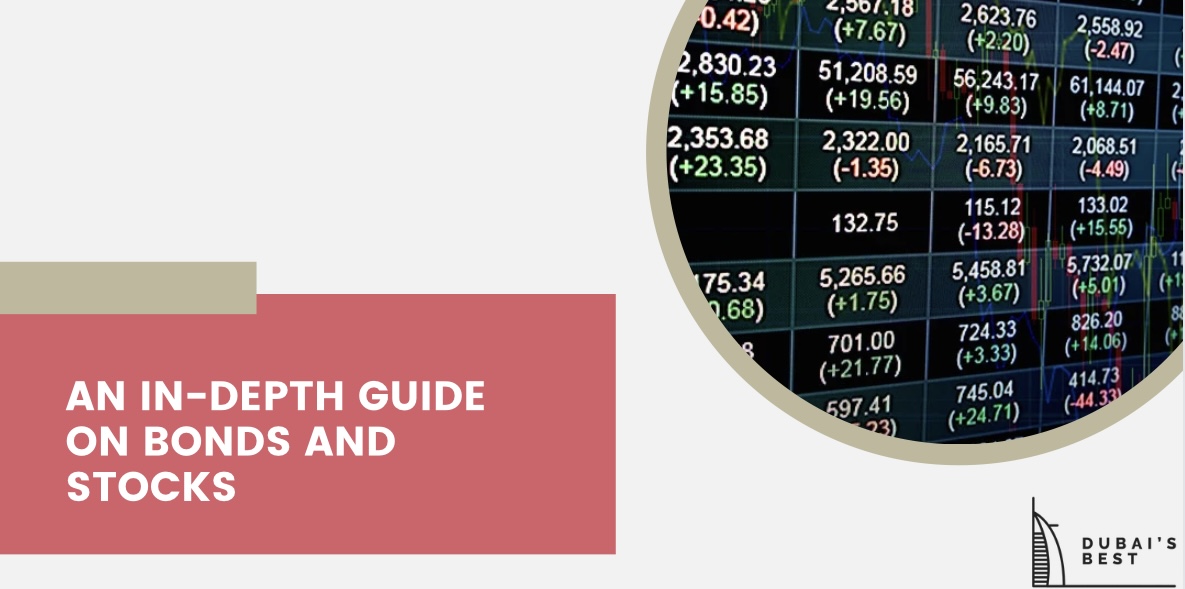A Simple Guide on Bonds vs Stocks
If you’re just starting out with your investments, deciding where to invest can be overwhelming. Your financial advisor may have advised you to invest in the two most common investments today—bonds and stocks.
Knowing the differences between stocks and bonds will help you make smarter investment decisions when it comes time to put your money where your mouth is—and hopefully make some serious cash along the way.
After all, you’re risking real money, just like any investment.
What are bonds?
Bonds are a term used to describe loans made to corporations or governments. They provide you, the investor, with a fixed income.
In return for the loan, the bond issuer agrees to pay back your principal (the original amount of money you invested) at maturity (the date at which a transaction ends) in addition to paying you interest depending on the terms of the specific bond.
Since they’re loans, bonds offer investors more predictable returns than stocks, which may be appealing if you’re risk-averse.
By definition, bonds are issued for a fixed period. The issuer will repay you at maturity and will also pay interest along the way, depending on how the bond is structured.
What are stocks?
You can think of stocks as a share in the ownership of a company. When you buy stock, you are buying a small part of that company.
If the company does well, the value of your stock will go up, and if it does poorly, your stock will decrease in value.
Most stock prices fluctuate because of supply and demand. If more people want to buy than sell, the price goes up; if more people want to sell than buy, the price goes down.
What are the risks between bonds and stocks?
Bonds are generally less risky than stocks, but not all bonds are created equal. Some issuers have a rock-solid reputation for paying back their investors on time and in full.
Others, such as small companies or cities with a lot of debt relative to their income, may default on their debt if they get into financial trouble. This can leave you holding an asset worth much less than what you paid for it—or nothing at all.
But the risk isn’t just about potential returns; it also involves liquidity: How easy is it to sell your investment if you need cash?
While most stocks trade on major stock exchanges during regular business hours several days a week, not all bonds do.
Many corporate bonds trade over the counter (OTC), so it may take longer to find someone willing to buy them from you—especially when many other investors are trying to sell simultaneously (for instance, during a market downturn).
What should you invest in?
For investors, the amount of money you put toward stocks versus bonds will depend on your age, financial goals, and risk tolerance. The younger you are, the more your portfolio should be invested in stocks.
This is because you have many years to go before retirement and still have time to recover from losses that may occur due to market volatility.
Most of your portfolio should be invested in bonds if you’re nearing retirement or already retired.
Why? Stocks are generally more volatile than bonds—meaning their prices can rise and fall sharply in days or months.
If you plan on using the investment returns from the stock portion of your portfolio to fund your lifestyle during retirement or want to minimize potential losses, then it would make sense for most or all of your investments to be in bonds.
No matter what investment you choose to go for on your next payday, you should never risk more than what you’re willing to lose.
It may also help you to hire a bookkeeper or accountant to help you with both your investments and personal finances.

